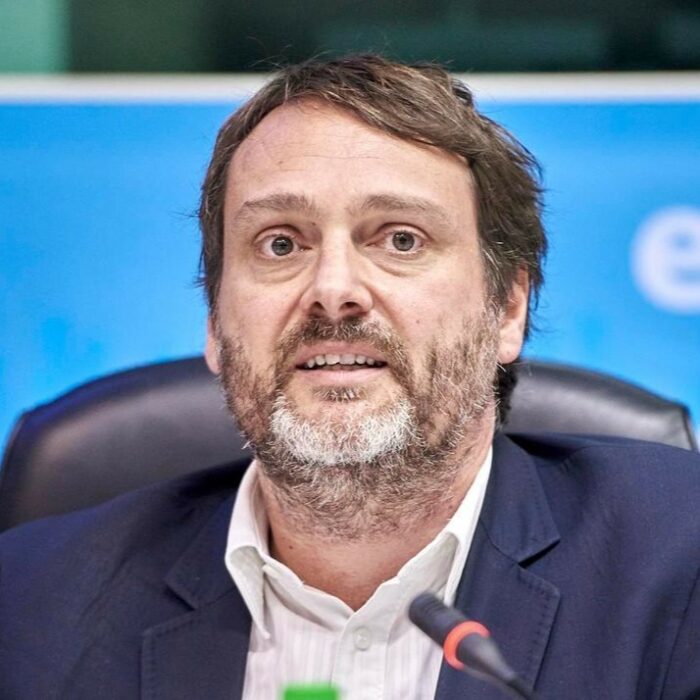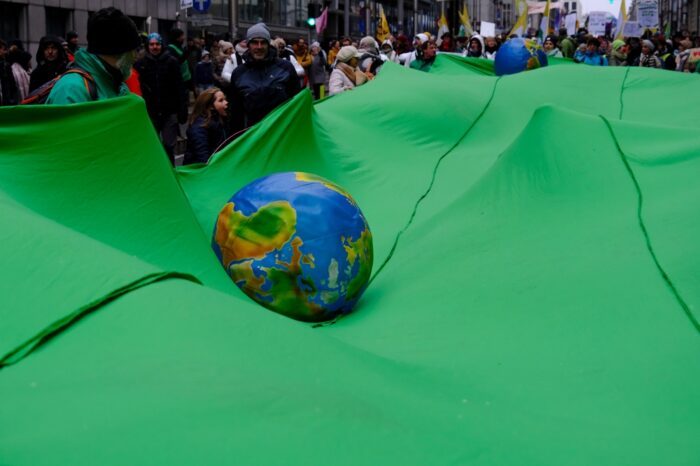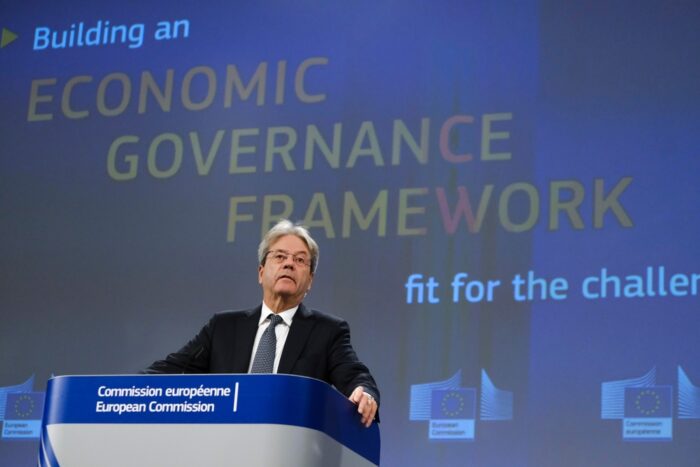The Progressive Post
COP26 needs to be about the redistribution of material wealth!

For this year’s COP26 conference in Glasgow on climate change, the host, the UK and its partner, Italy, have put the focus on an ambitious increase of the efforts to bring emissions down, on strengthening the adaptation to the impacts of climate change, on mobilising finance for climate action, and on enhancing international collaboration.
With a new US administration, that has made climate action a centrepiece of its policies and China’s pledge to achieve carbon neutrality by 2060, there is an international momentum to go beyond ‘business as usual’ at this delayed COP, but it cannot again and only be about solving divisions on Article 6 of the Paris Agreement on how countries can reduce their emissions using international carbon markets, or a post-2020 rulebook for international emissions trade.
The UN Secretary General. Antonio Guterres has described 2021 as a “make or break year” in tackling the climate emergency and underlined that we need to launch a decade of transformation that the people and the planet so desperately need.
If we want to start such a transformation, the climate emergency and the huge threat of the accelerated loss of biodiversity cannot be addressed separately anymore. The current set-up with one COP on climate change, and a separate one on biodiversity (this year 11-24 October in Kunming, China), which gets much less attention, needs to be questioned.
The limits to overall development within the planetary boundaries and the bottom line for the social wellbeing (decent work and health security, education, etc) are well defined (for example in the ‘Donut economy’ concept developed by Kate Raworth) but the material ‘minimum’ wealth for a ‘happy’ life is less clear.
Although the ecological limits of economic development are very well known, they are far from being respected. We are using renewable resources, like timber and other resources, from nature faster than ecosystems can regenerate and filling waste sinks beyond nature’s capacity to assimilate. While there is some relative ‘decoupling’ of economic production from its impact on nature, this is often a result of wrong accounting and trade in which wealthy countries are ‘exporting’ their ecological impacts towards poorer countries.
Climate change and biodiversity loss are in fact the key monitoring indicators for too much, too fast, and wrong consumption patterns. Climate change is not only an energy or transport challenge, but also the symptom of an overall unsustainability of the economic system and the loss of natural capital (the stock of ecosystems that yield a renewable flow of goods and services that underpin the economy and provide inputs as well as direct and indirect benefits to businesses and society) that originates way beyond the local impact at the place of consumption. One could argue that we could achieve all the UN Sustainable Development Goals (SDG) by tackling specifically the SDG 12 on sustainable consumption and production, in a socially just way.
There is a lot of literature on what the social foundation should be. We have an idea of the kind of basic healthcare, education, etc one needs for a ‘happy’ life. However, what we have not defined clearly enough yet, is the amount of material wealth that is actually needed per capita. How much individual, and how much public transport? What is sufficient housing? What amounts of food, leisure and access to energy is needed to assure wellbeing?
Basically, the question is: how much is enough?
We need to define ‘sufficiency’ better, and we need to have a discussion on what a really equitable and just approach to tackling this dual challenge of the climate and biodiversity emergency means in detail.
It is abundantly clear that it is impossible to raise the material living standards of the current poor to those of the rich without crossing the planetary boundaries. But once we dare to set a ‘material wealth’ foundation, or sufficiency level, we can start to calculate what is really needed to provide the total global population with a basic fulfilment. The outcome, however, will most likely not be palatable to those who are rich today, as providing an equal share of a limited planet entails, mathematically, reducing the share of the wealthy nations. This goes even beyond the discussion of ‘common but differentiated responsibilities’ or ‘loss and damage’.
So, when we know ‘how much is enough’ we need to identify how much the wealthy nations need to reduce their consumption in absolute terms.
We will not solve this with technology alone. An extravagant illustration of how a technology-approach can fail is the belief that we can just replace the current (or even future) amount of combustion engine cars by electric vehicles. This will not solve the resource-challenge coming from producing these cars, nor the continuous need for all the private transport that continues (be it electric). It will solve emissions from the cars with good effects for local air-quality and there will be gains from CO2-neutral transport, but it is not the silver bullet for achieving the needed transformation of out mobility system.
If this is to be a “make or break year”, a transformative COP26 ought to dare to address this ‘elephant in the room’ properly.
Sustainable consumption and production needs to, firstly, translate into less production and consumption in the OECD countries. Despite rapid technological advances and falling costs, it is still not clear if renewable energy alternatives, including wind and photovoltaic electricity, really can completely replace the current and future increasing energy needs of major uses, such as transportation and heating.
At the same time, massive global social inequality persists. According to Oxfam, the richest quintile of humanity earns about 70 per cent of the global income, while the poorest fifth of the population only earns a meagre 2 per cent.
High-income countries have achieved this level of ‘development’ by promoting material growth, (over)consumption, globalisation, and trade. The good environmental performance recorded within these nations hides the enormous amount of imported embedded emissions and biocapacity-use in products, which makes these countries in fact run an ‘ecological deficit’.
Both conferences this year, the COP on climate and the one on biodiversity, should really focus on devising methods for a more fundamental redistribution, and on how to share the benefits of development more equitably. The goal should be to increase the material well-being of the poor while simultaneously reducing the material throughput of the rich.
The climate and the biodiversity COPs in the fall should not be only environmental conferences, but could be true engines of societal change. This, however, requires political courage and leadership.
We need to continue to hope that Climate and Biodiversity Conferences, but also other international political fora will dare to address the more fundamental instruments of redistribution. The recently agreed proposal by the G7 Finance ministers for a 15 per cent minimum tax rate for multinational groups together with new rules for allocating the taxing rights over the largest international companies is a hopeful steppingstone. We need to recognise though that much more is needed and the relevance of the G7 has dwindled in the last decades with a declined share of producing 51 per cent of world GDP in 1980 to a mere 31 percent in 2021.
The challenge remains though that what is politically feasible is often ecologically and socially irrelevant.
Photo credits: Shutterstock
The opinions expressed in this article are those of the author. They do not necessarily reflect the opinions or views of the EEA.
Related articles:
Bringing the Green Deal home, by Linda McAvan
Towards COP26: beyond declarations, smart actions with real impact are needed, by Saïd El Khadraoui




